Belonging and Difference
Cici Wu
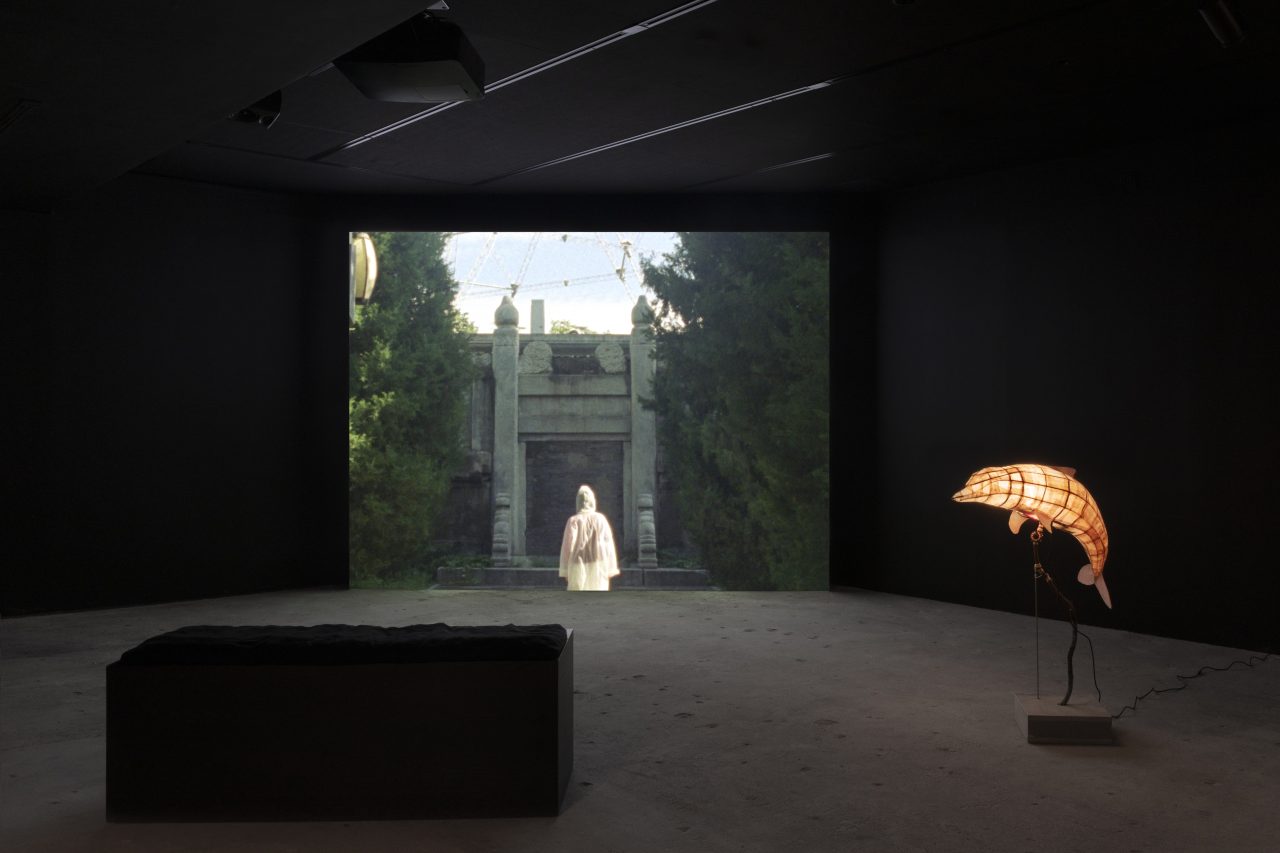
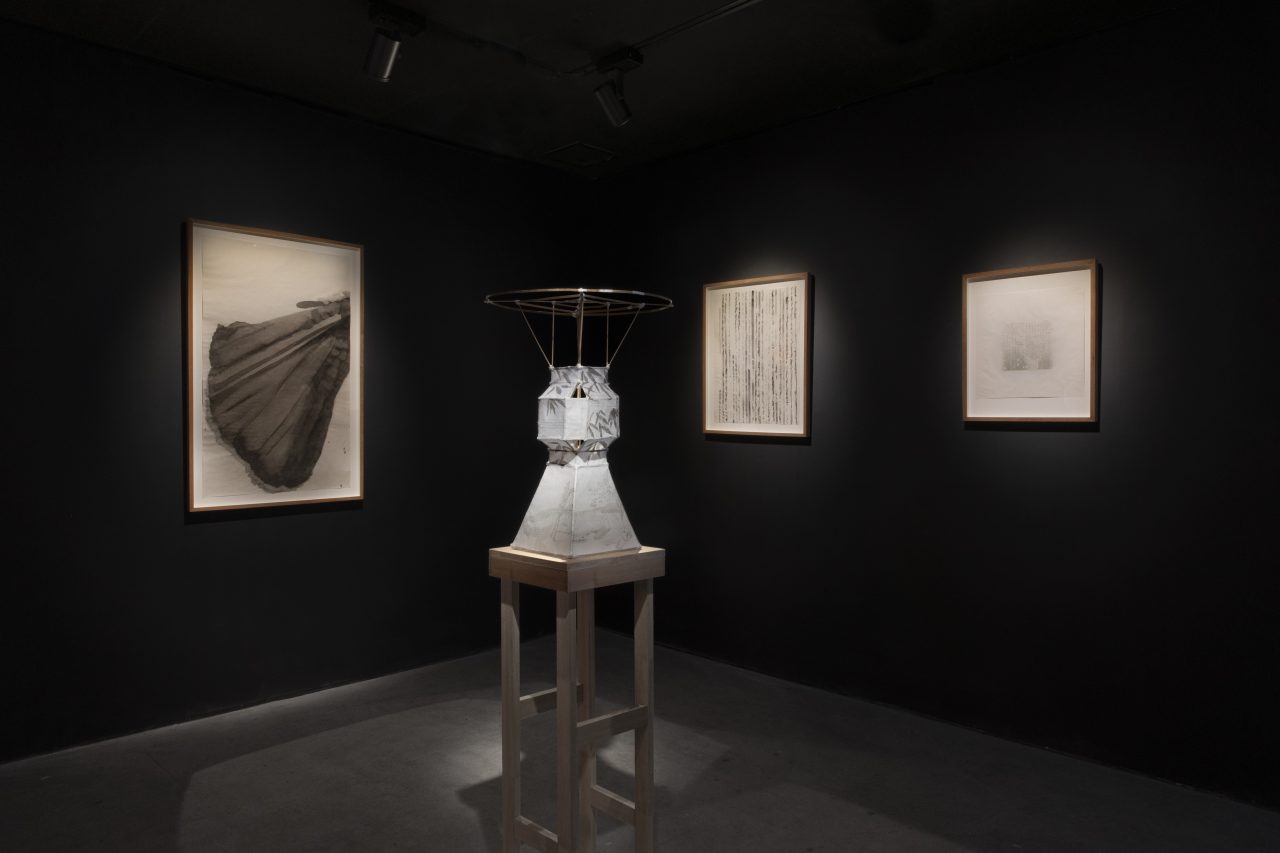
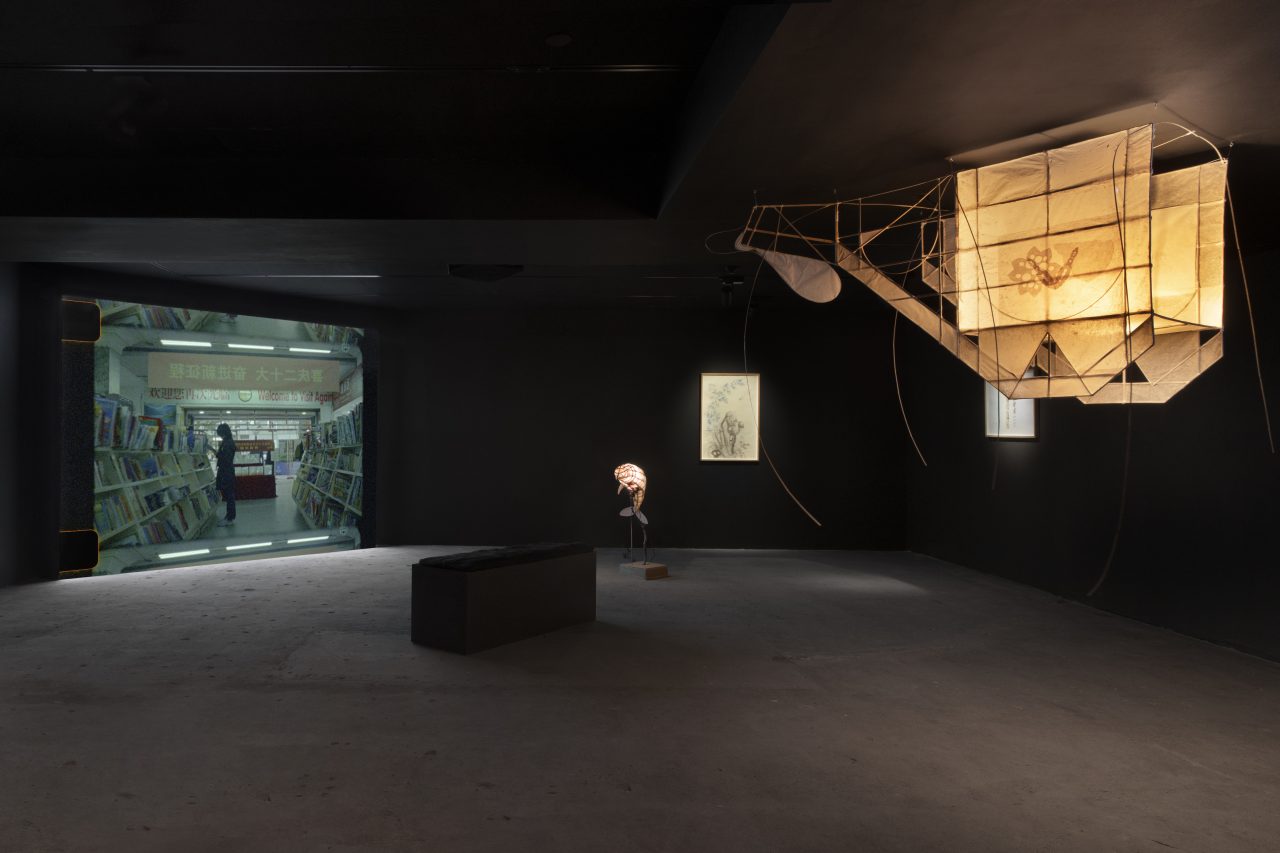
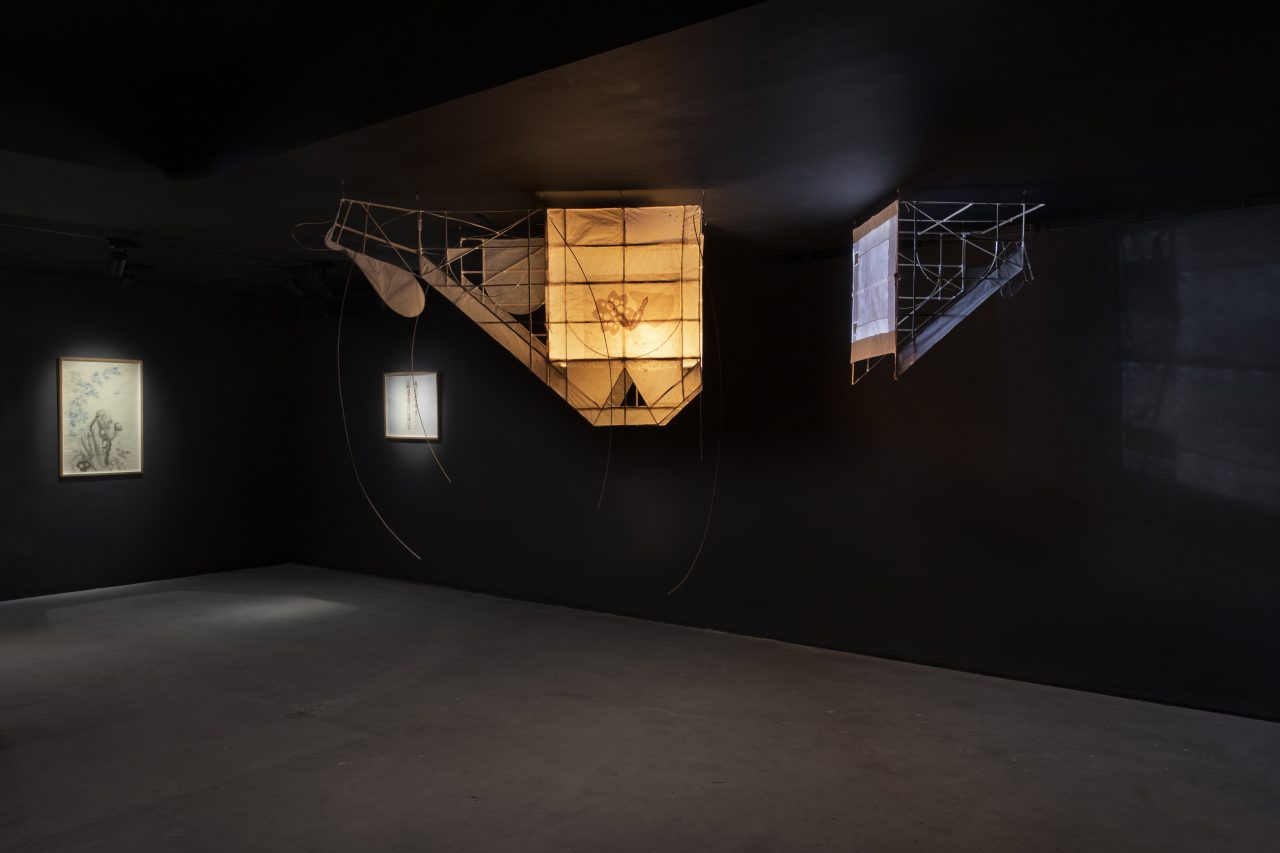
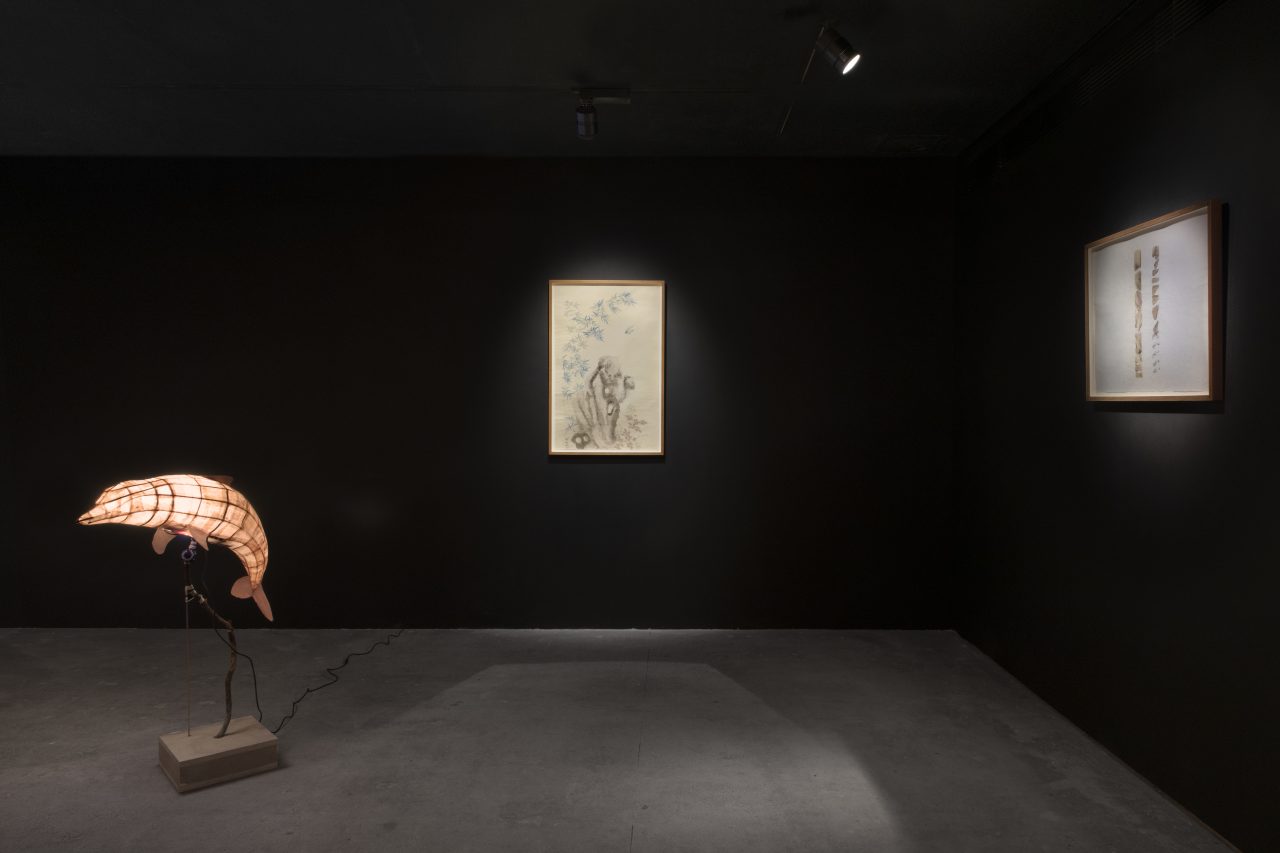
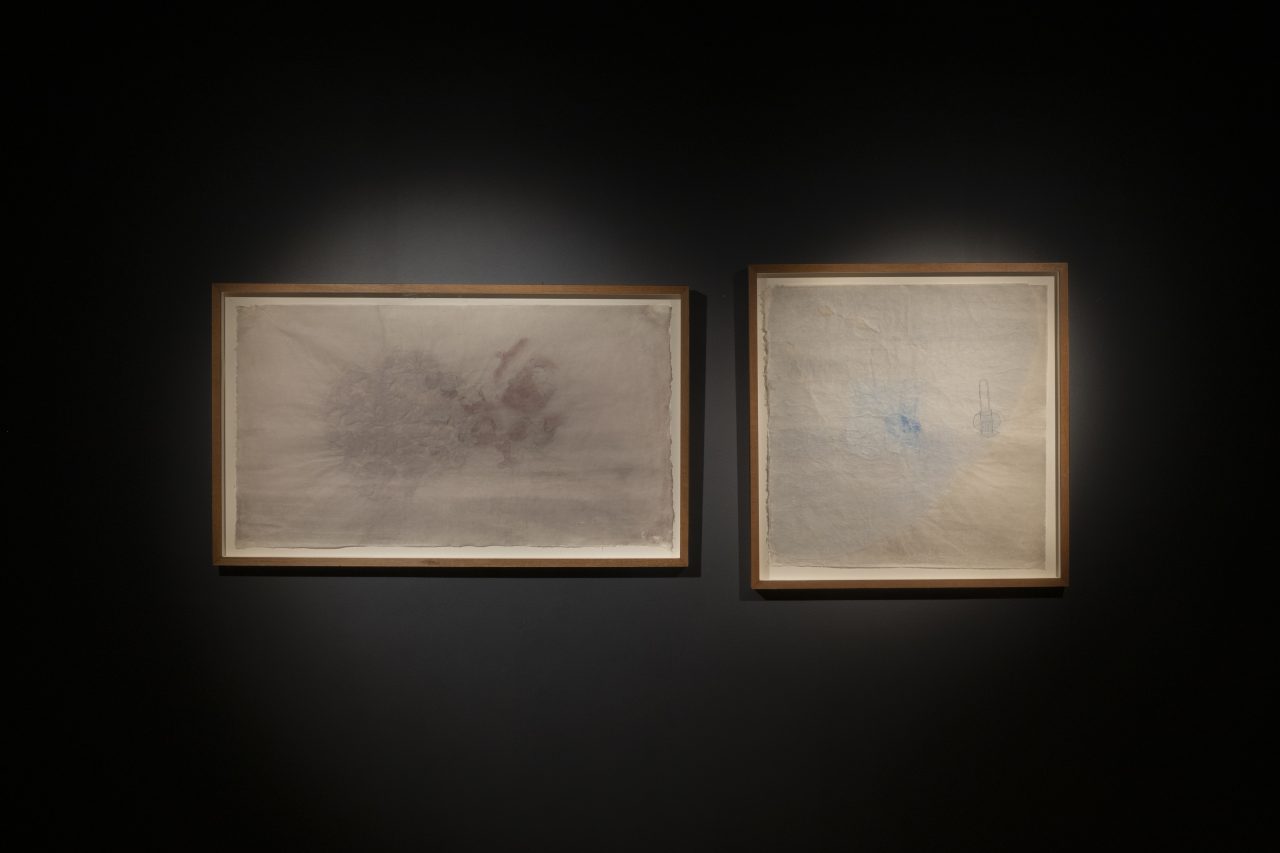
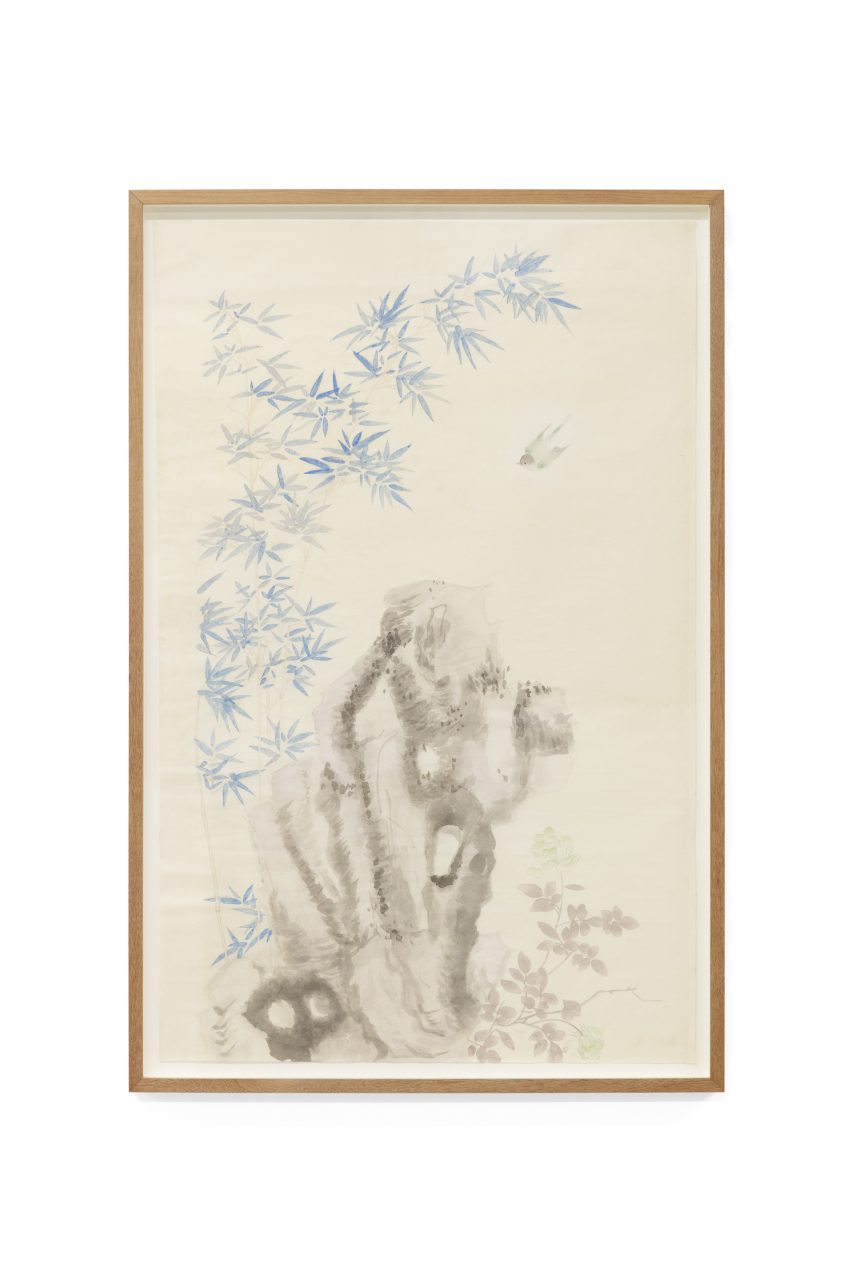
Dislocated Love (Flower, Bird, Bamboo and Rock), 2023
Ink and mineral pigment on rice paper
63 x 96 cm x 3 cm
24.80 x 37.79 x 1.18 inches
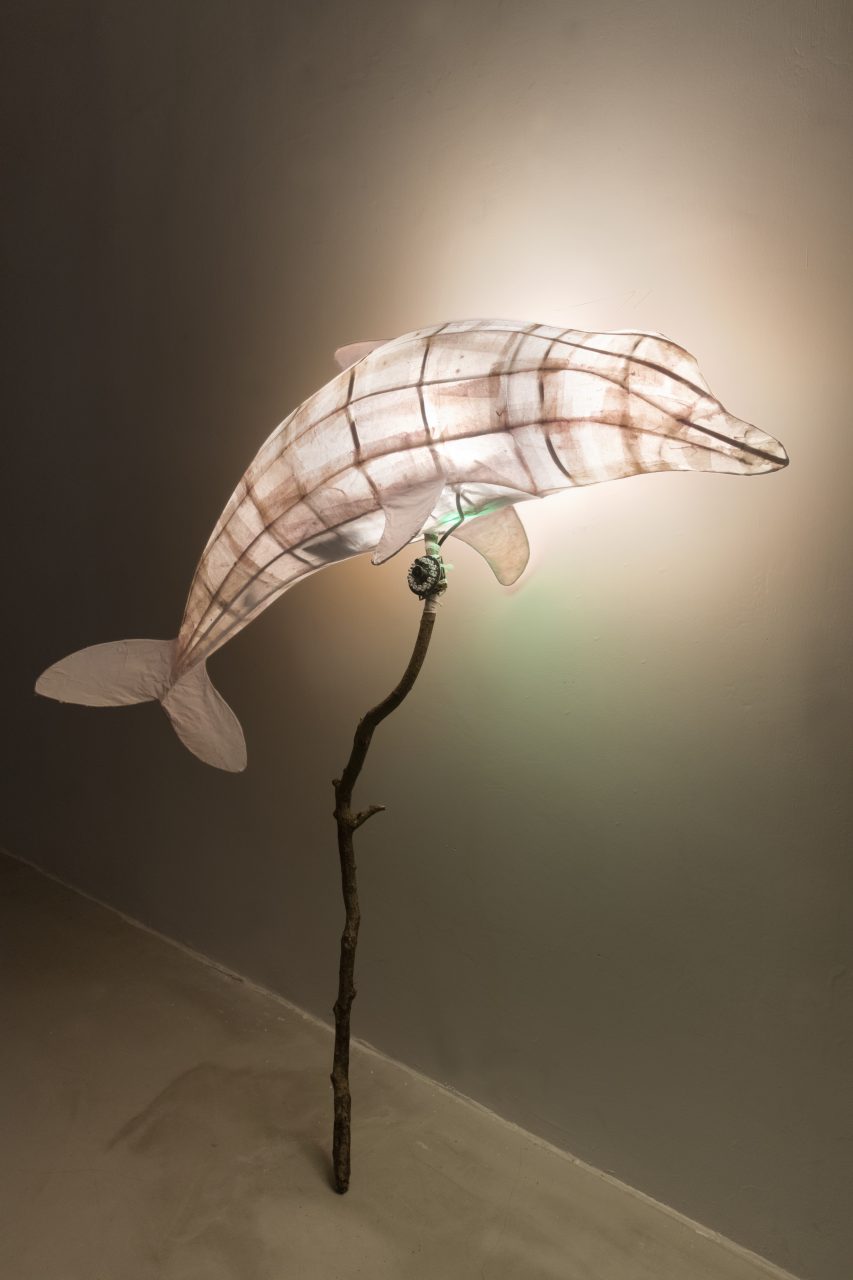
Foreign Object #2 Umbra And Penumbra (Dolphin), 2023
Bamboo wire, paper, Raspberry Pi 4b, USB webcam, neopixel ring LED, cable, memory card
73 x 29 x 99 cm
28.74 x 11.41 x 38.87 inches
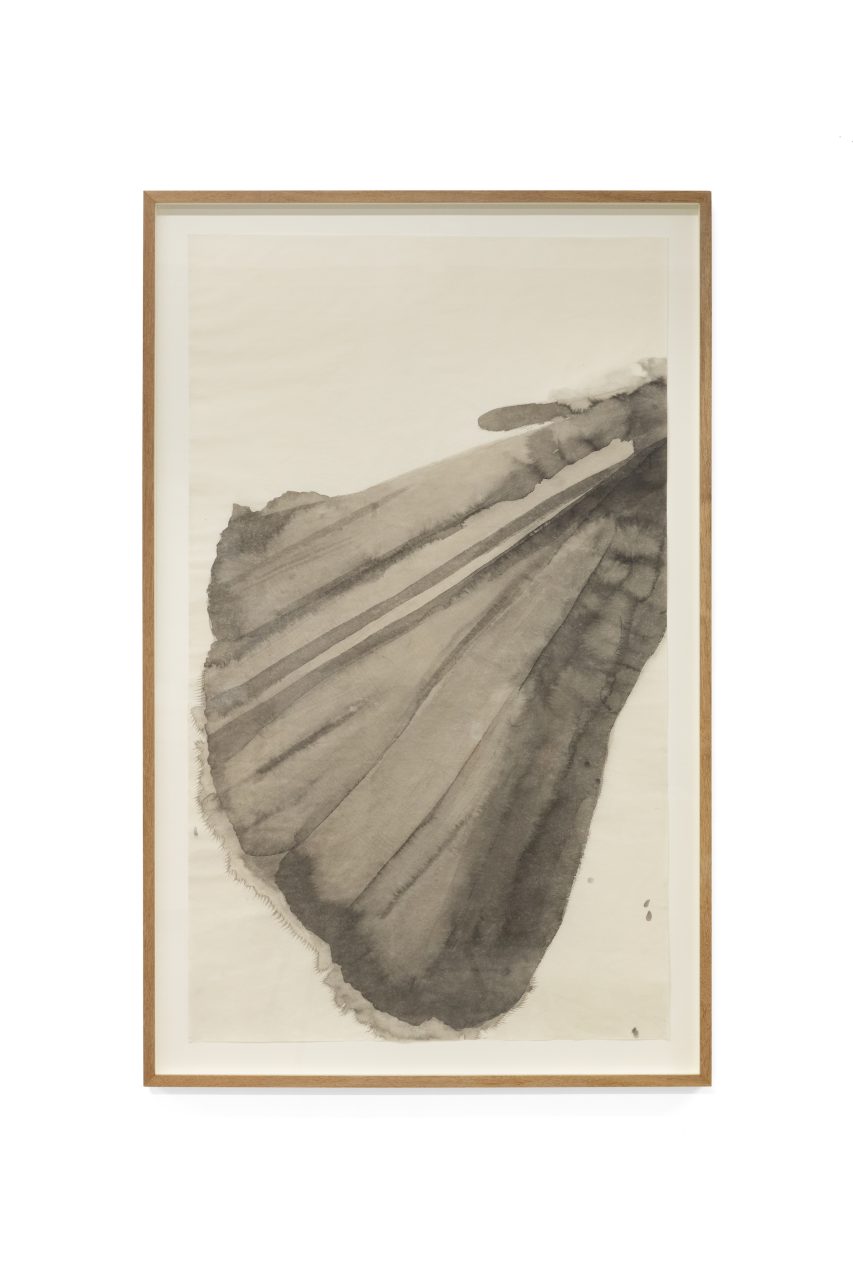
Re:Mothlight (Wash Away), 2023
Ink, mineral pigment, rice paper
73 x 106 x 3 cm
28.74 x 41.73 x 1.18 inches
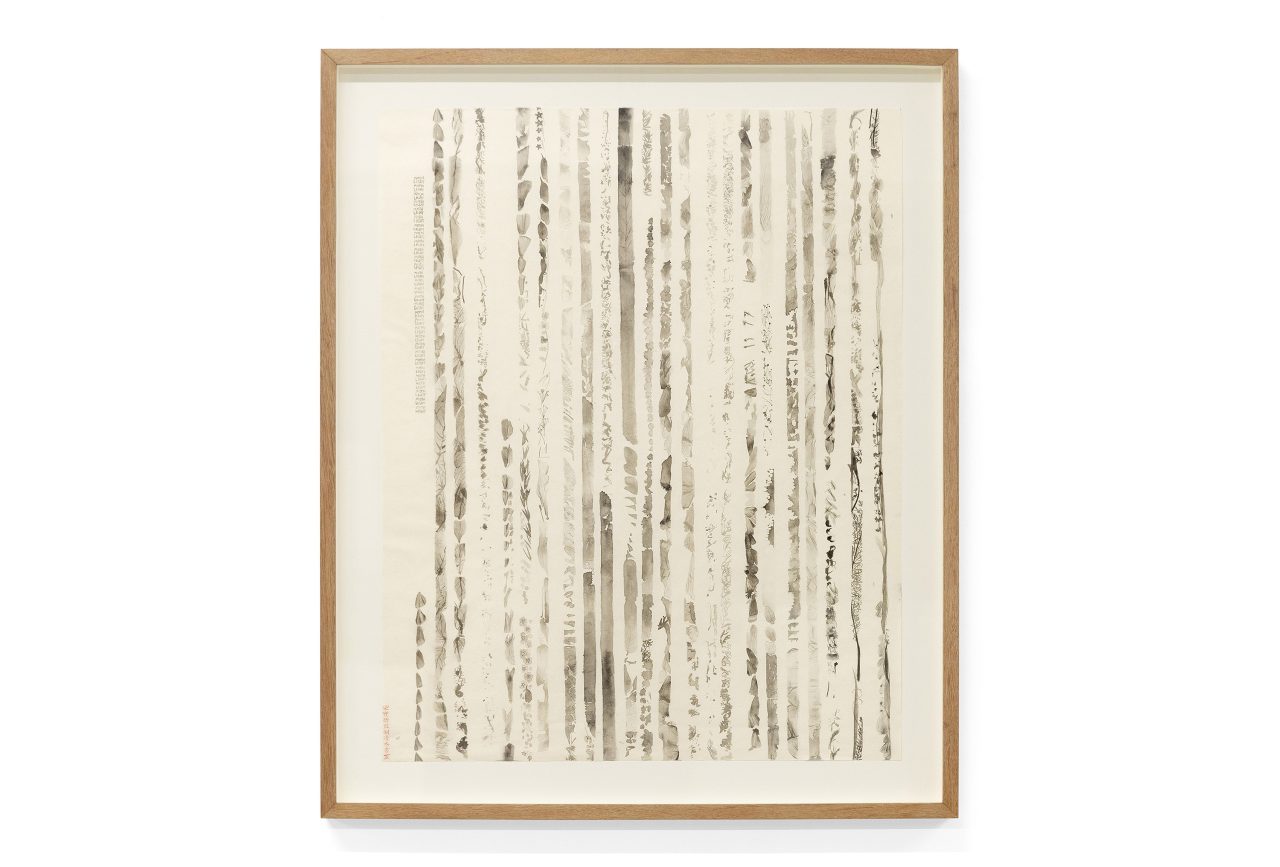
Re:Mothlight (Changing Brightness 01), 2023
Ink on paper
60 x 74 x 3 cm
23.6 x 29.1 x 1.2 inches
Empty Gallery is pleased to present Belonging and Difference, New York and Hong Kong-based artist Cici Wu’s second solo exhibition with the gallery. Reducing filmmaking to its most humble and elemental components, Wu creates objects, videos, and installations which extend the imaginative and structural premises of cinematic language across a wide range of media. Often taking local microhistories or archives as a point of departure, Wu uses the cinematic frame as a means to negotiate and reflect on the ways in which transpersonal narratives of social, cultural and historical belonging structure our experiences of self. Produced between Hong Kong, Beijing and New York––three locales fraught with both intense emotional attachment and ideological conflict for the artist—the exhibition will present a new body of work made over the last two years.
At the center of the show is the titular Belonging and Difference, a new film produced in collaboration with Beijing-based collaborator Yuan Yuan which interweaves 16mm film and DV video with textual intertitles and fragments of voice-over narration. Merging aspects of visionary cinema, landscape film and home movie, the film combines footage shot in Manhattan Chinatown, Hong Kong, and Beijing into an intimate reflection on the act of physical and spiritual passage between a series of pressurised and rapidly shifting temporalities governed by different myths of order. Drifting between iconic monuments and anonymous streets, spaces imprinted with the traces of tenderness and violence, liberation and repression, saturated with memories both personal and collective—Belonging and Difference revels in the unexpected flashes generated by the friction between different modes of speaking, thinking, and feeling.
The projection-sculpture Tsaiyun (Rosy Cloud) Bridge serves in many ways as a counterpoint to Difference, exploring similar thematics from a position of reflective dwelling, rather than external movement. Using re-photography and stop-motion animation, Wu considers the disquieting familiarity and essential strangeness of a trove of archetypal images of China. Drawn from old issues of China Pictorial—an internationally distributed, state-sponsored periodical instituted during the onset of Communist China—Wu endows this material with a personal valence through shifts in tempo and scale, further embellishing the frame with paper cut-outs and quotidian objects. Tsaiyun explores the space existing in the interstices between memory and propaganda, the personal and the official—pointing to the ways in which an overdetermined history can make it complex to parse notions of authenticity and cultural belonging. By situating these images within the form of a traditional bridge, Wu seems to gesture towards the liberatory potential of re-evaluating our own assumed origins.
This concern to re-trace and re-negotiate both personal and collective history is echoed within a suite of new collages, ink drawings, and lantern sculptures which reflect on similar sentiments through their engagement with the psycho-social dynamics of memory, time, and the boundaries of belonging. Continuing Wu’s long-standing interest in developing speculative recording devices, Foreign Object No. 2—a hybrid lantern-camera in the shape of a dolphin—provides a means for experimental seeing; a tool for breaking free from naturalized perspectives. A series of new works engages with Stan Brakhage’s experimental film Mothlight (1963). Finding in Brakhage’s idea of an organic and cameraless cinema a potential passage beyond the limits of eurocentric technologies of vision, Wu delicately renders segments of these filmstrips in mineral pigments. These ink drawings are at once suffused by a quiet beauty and a sense of untimeliness, a deformation of the expected media and reference points— from motion to stillness and from the American avant-garde to bird & flower painting. Drawing on sources both ancient and modern, Wu’s tracings perform an active process of transmutation— a procedure where new memory-wet contours and inflections emerge from the inert space of the merely historical.
In the past, Wu has spoken of her persistent search for what she terms a “human realm”. In Belonging and Difference, she searches along manifold routes and pathways for a way to negotiate identity, not through geography or nationality, but rather through flexible networks of social belonging and political solidarity. She attempts to question the seeming impasse of postcolonial and diasporic theory, proposing an alternate notion of identity based around the ideal of movement and the gestures of dwelling, moving, and returning—emphasizing the virtues of passage amongst discontinuous temporalities. During a moment in which subject positions are ever more tightly staked out, categorized, and policed, Wu’s work strives to cultivate a temporary autonomous zone—a mobile space where the pure vulnerable potential of undetermination can continue to exist; a fleeting glimpse of a blush-colored hide parting the waters.
Special thanks: Marilyn Brakhage, Mark Toscano, Canyon Cinema, Fred Camper, Sang Woo Loong Art and Paper Craft (生和隆美術扎作), Frankie Leung, Michelle Wong, Fai Wan, Alysha Lee, Stephen Cheng, Alex Lau, Michael Yu, Kaitlin Chan, Jacqueline Kok, Iris Poon, Rafael Vunkwan Tam, Victor Au, Emilia Wang, Margaret Lee, Elaine W. Ho, Xiaofei Mo, Taro Masushio, Amy Lien, Jaime Chu, Qu Chang, Chan Hau Chun and Kenny Wong.